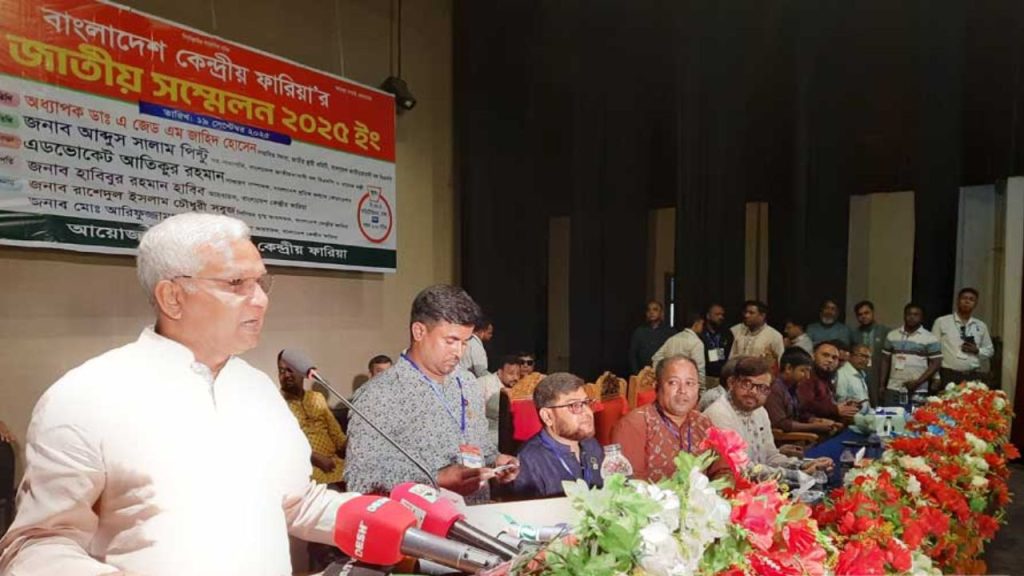BNP Standing Committee Member Prof AZM Zahid Hossain has warned that no political group will be allowed to impose its party or foreign-backed agenda on the people of Bangladesh under the guise of democracy.
“You must present your agenda to the people just as we will present ours. Whoever the people choose, we will salute them. But no one has the right to impose a party, group, or foreign agenda by pretending to represent public opinion. That won’t be accepted by the people of Bangladesh,” he said.
He made these remarks on Friday while speaking as the chief guest at a discussion organised by the Bangladesh Pharmaceuticals Representatives Association (PHAREA) at the BMA Auditorium in Dhaka. The event was part of PHAREA’s national conference, which also included leadership elections.
Addressing those campaigning for the Proportional Representation (PR) electoral system, BNP leader Zahid said, “We haven’t heard any demands for PR-based elections over the past 16 to 17 years. Suddenly, with elections approaching and national consensus talks underway, some are on the streets pushing an unfamiliar agenda.”
He criticised such moves as distractions meant to delay elections and destabilise the country. “Some are speaking in authoritarian tones, saying, ‘We won’t allow this to happen unless our demands are met.’ That’s not democratic behaviour. If you believe in democracy, put it in your election manifesto. If the people elect you, you can implement that system.”
He emphasised that BNP has clearly outlined its vision through 27 points for state reform announced in December 2022 and a 31-point outline released in July 2023. “Everyone knows what BNP will do if it comes to power,” he added.
Zahid also warned about attempts to create chaos in the name of activism. “Some are bringing ballot boxes to discussion forums to mimic elections. This is not acceptable. We already have an Election Commission and a legal electoral process in place.”
He further noted that while some political activists have fled abroad, the majority of people remain in the country and are resisting these tactics through spontaneous demonstrations. “That’s why you see flash processions across the capital,” he said.
Zahid urged unity ahead of the national election and warned of the instability that might follow the adoption of the PR system, citing Nepal as an example. “Nepal has seen over 14 prime ministers in recent years under the PR system,” he said.
He accused certain forces of trying to derail the election and worsen the country’s law and order situation to scare away investment and increase unemployment. “These are conspiracies aimed at keeping the election further away,” he said.
Finally, he called on the parties demanding PR to include it in their manifestos and take the proposal to the people for democratic validation.


